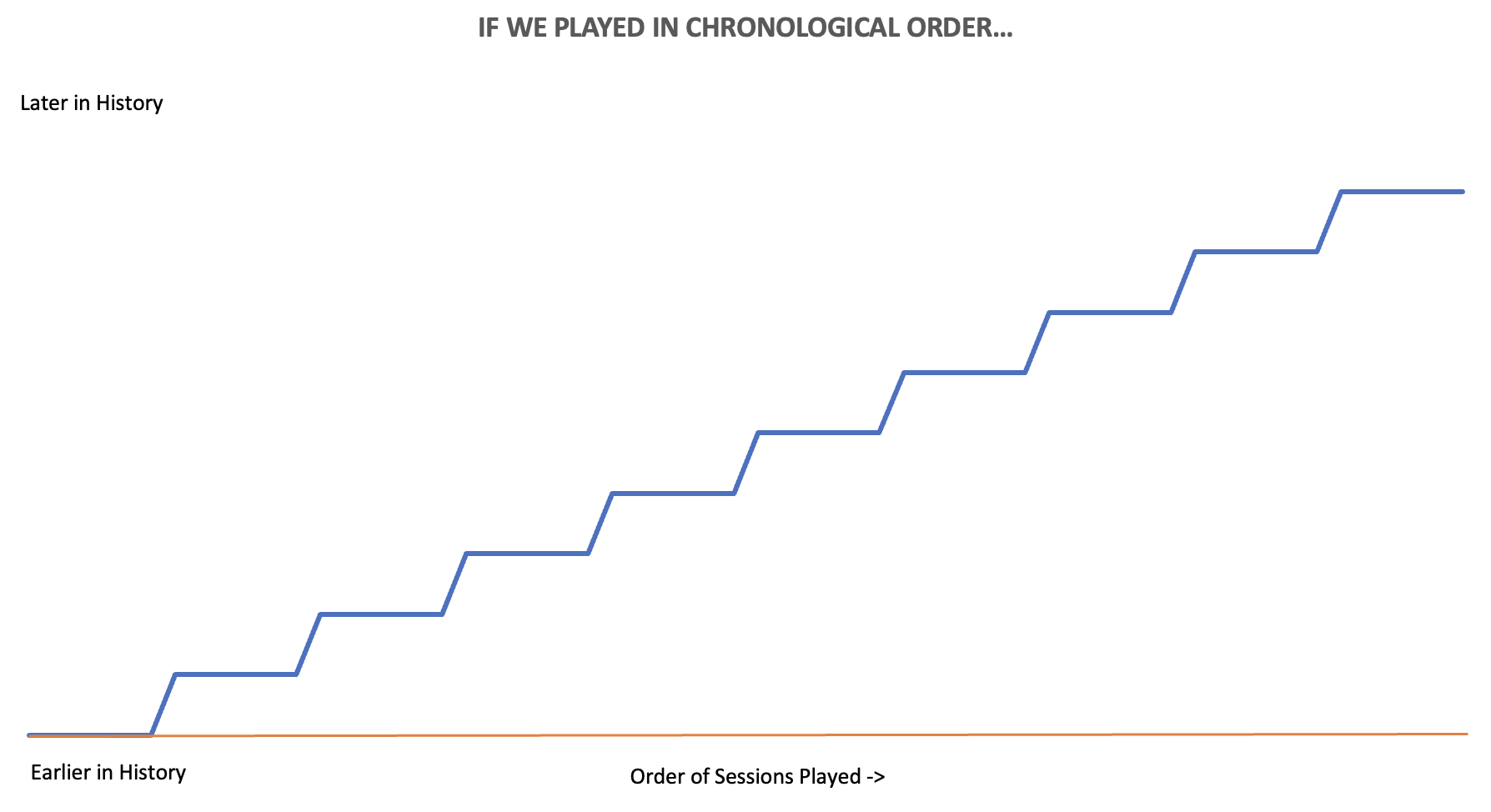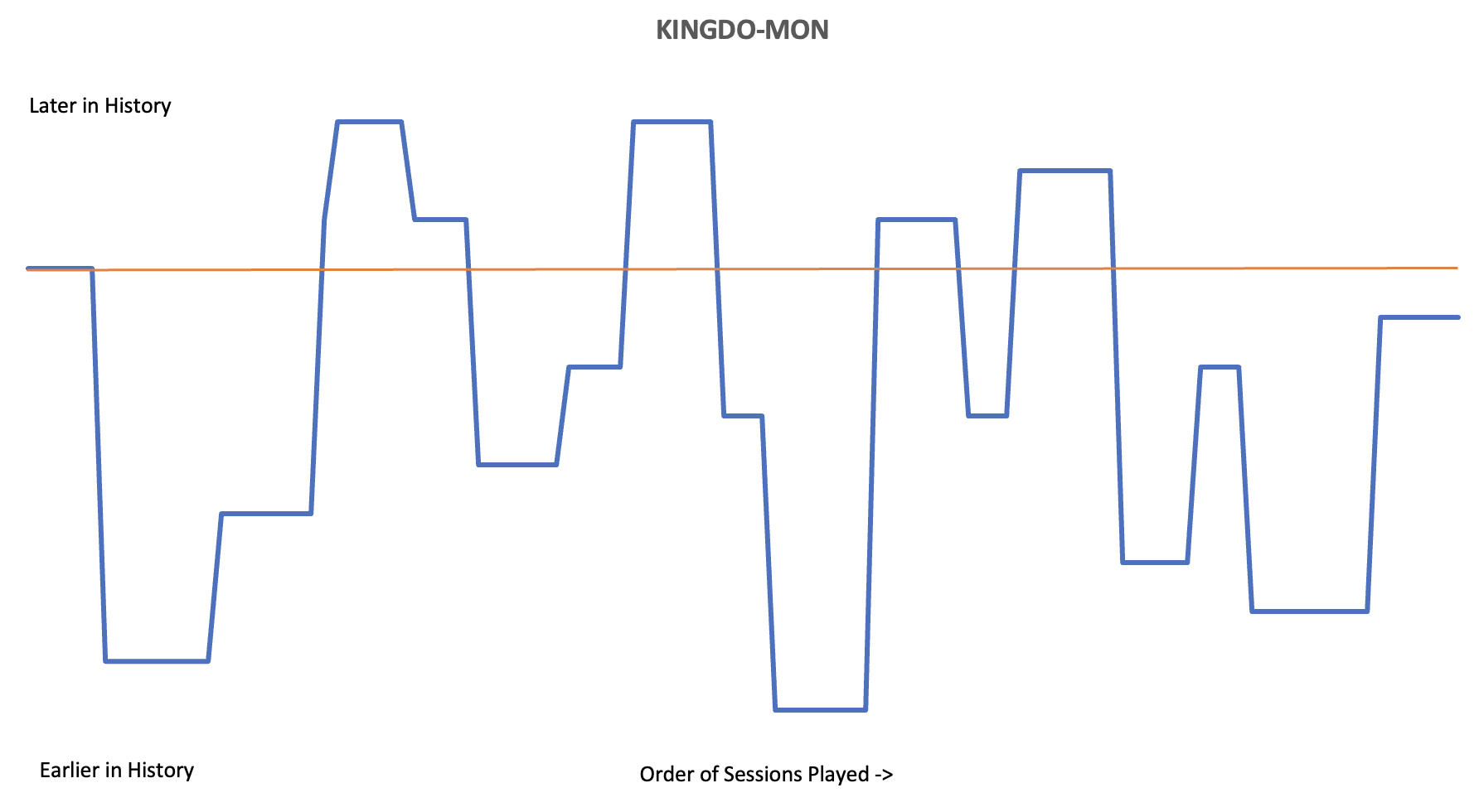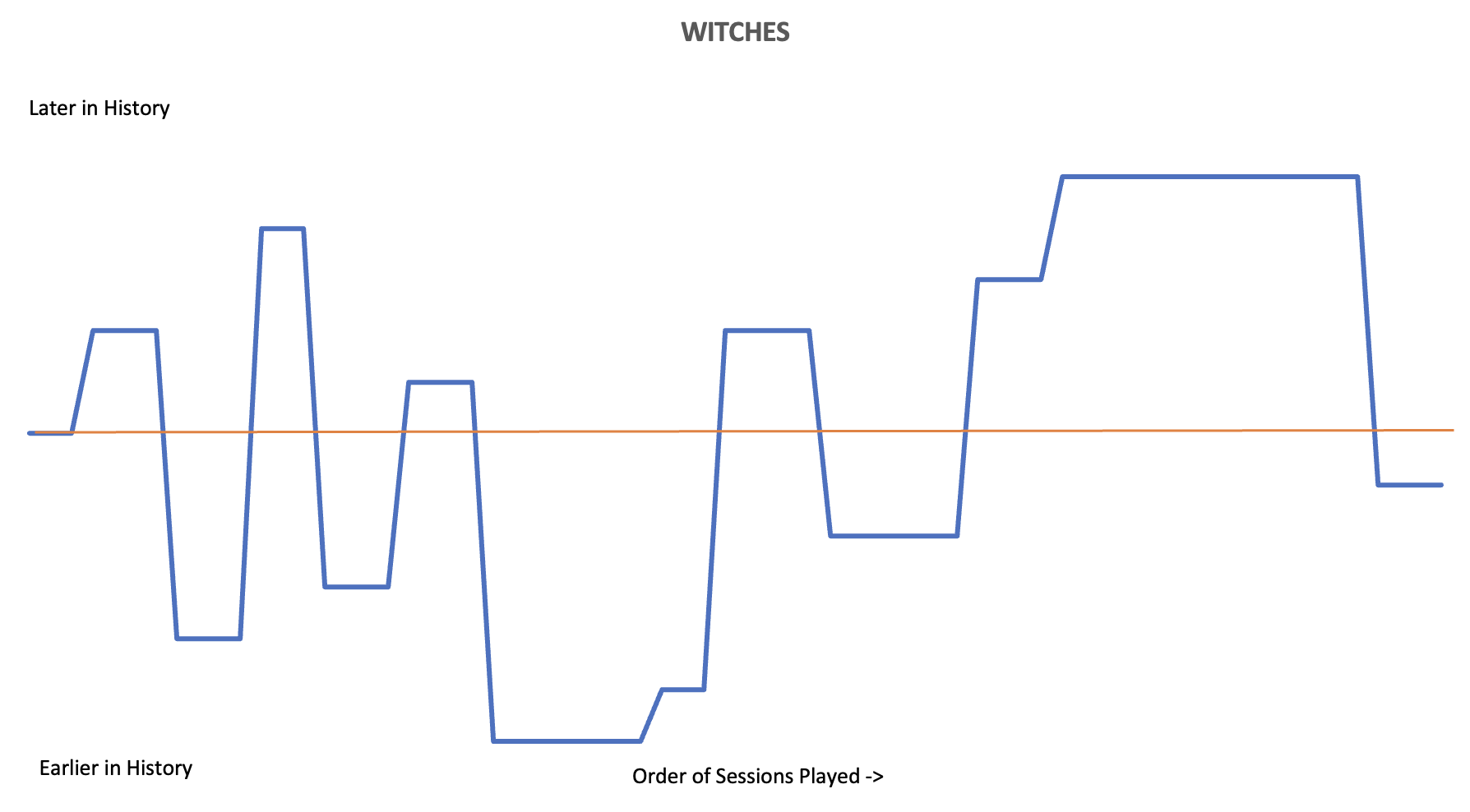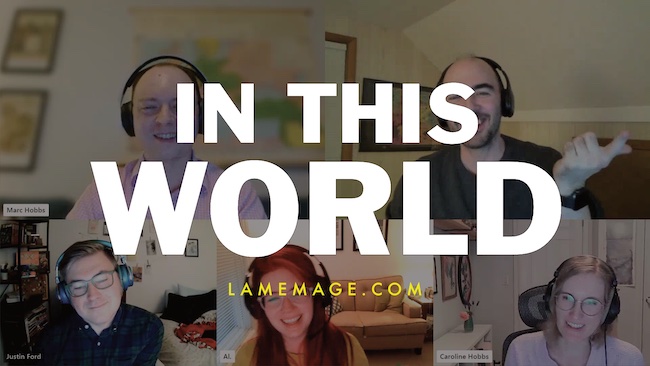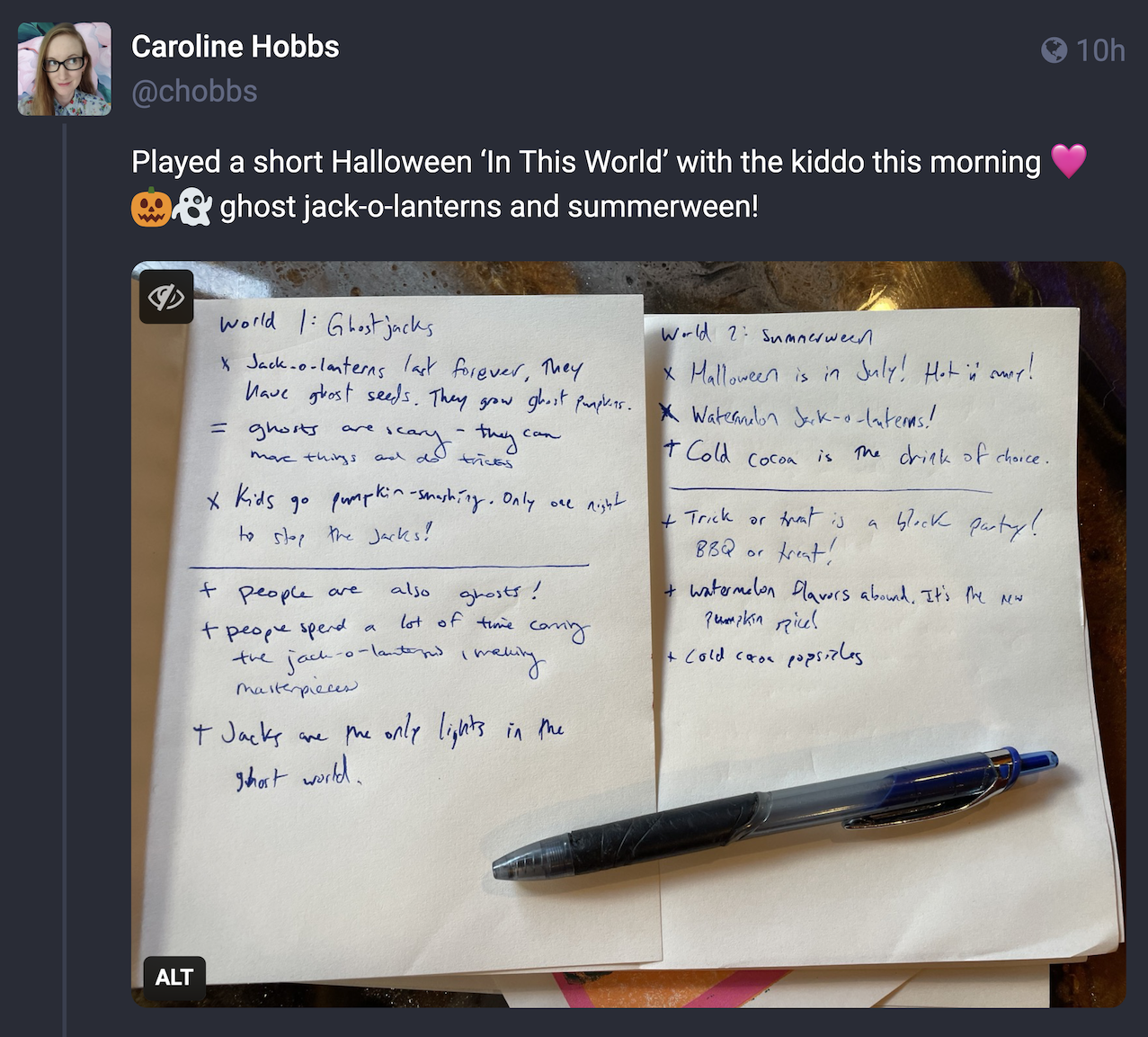What’s Making This Downfall So Good?
We’re playing a game of Downfall that has rapidly become my favorite. I was going to say it’s up there, but by now there is no question: this is the best Downfall game I’ve ever played.
But because I am a game scientist, complete with lab coat and goggles, I cannot leave well enough alone. I cannot simply say “hey, that was fun!” I must take the machine apart, gear by gear, and see what makes it tick so nicely. I must understand. I must know. And fortunately for me, Ace and Joe, the other players at the table, are just as big game scientists as I am. So we have had not one but several extended debriefs analyzing what is making our game so damn good.
We’re playing our 8th session this week. Maybe it all falls apart. Maybe it explodes in tears. That’s always a possibility in the daring creative space we call story games. But in the meantime let me tell you about Luxandre, the Empire of Light, and why we think it’s turning out so awesome.
These are the key things that I think we’re doing differently from other Downfall games I’ve played in the past. These weren’t things we planned, just a series of small decisions that all came together. These are all takeaways from the epic chats with Ace and Joe, and they might chime in with more observations of their own.
Virtue #1: Our Society Does not Suck
Our haven is Luxandre, the “Empire of Light”. It’s a civilized, educated, and advanced society. We call ourselves an empire but we don’t conquer our neighbors, they actively want to adopt the knowledge and advancements we have, because we’re so smart and civilized.
In Luxandre, our Flaw is knowledge, which is normally a very positive trait. It goes wrong when we are unwilling to act unless we understand every side of a problem, or when we don’t recognize that some things are just not everyone else’s business.
But all in all it doesn’t seem like a bad place. Our traditions are pretty reasonable and people seem to have good intentions. The result is that we, as players, are basically sympathetic to our society. We don’t think it sucks and simply deserves to burn, which is something that can happen when you make really flawed societies. We’re rooting for it. Could we have gotten a society that didn’t suck even with a more typical “negative” flaw like greed or cowardice? Sure.
Virtue #2: Our World Is Not Bizarre
In Downfall, the players secretly pick elements (e.g. “trees, ink, and noise”) and then try to combine them to imagine the physical world for the haven. The downside is that this often leads to pretty weird environments, like talking spirit-forests or floating asteroids circling a cold sun.
For Luxandre, we made a pretty normal world. We did use the elements (“empire, echo, and light”), but we incorporated them as themes rather than physical facts: ‘light’ because we’re a shining beacon to the nations around us and we try to bring the truth to light, and ‘echo’ because more and more places want to imitate us and adopt our ways. And ’empire’ because empire.
Since there’s nothing weird about the physical world, we don’t get distracted talking about it. Instead we focus on the society and the people. And it’s easier to imagine living in a more normal world, so put another check in the “we can relate to it” box.
Virtue #3: Our Hero Is Respected (at the start)
In the past I’ve pointed out how the game term “haven” can lead players to imagine a small and isolated community, but Luxandre is huge. So big that it’s divided into many Provinces, each ruled by a Governor with nearly unlimited authority in their domain. That’s one of the traditions we established: the Governors are renowned and trusted for their knowledge. They’re basically considered the wisest person in the Province, which is why they are chosen to rule.
To make your Hero — the one person who sees the flaws of society and rebels against it — the rules say pick a tradition and give them a job related to it. So of course we make the boldest move and decide that our Hero is the Governor. Instead of making our Hero some shifty dissident, our rebel is basically our king.
Grace is a wise old grandmother who’s been Governor for decades. She’s got a keen eye and a quick tongue, and no one knows what she’s really thinking, or that she has secretly questioned our way of doing things for ages. When people talk to her, they naturally think she’s doing her best for the good of society, because that’s her job. They don’t treat her like an enemy.
But even though she’s in a position of great power, she’s still just one Governor in the larger Empire, so she there is some authority above her, somewhere offscreen. And if she tries to wave her hand and change the whole culture, people will freak. No spoilers!
Virtue #4: We Made Minor Characters Without Personal Connections
So that’s all stuff that happened during our setup. We also made a Fallen and a Pillar — characters who totally believe in the benefits of the Flaw and who are just fine with the status quo, respectively. The rules have you give each of them a relationship to the Hero, picking from a simple list: family, friend, guardian, leader, lover. Which is great stuff, because it gives a clear personal connection between characters who are effectively going to be adversaries.
Buuuuut, there’s a subtle downside, which is that because the connections are personal, we can wind up focusing more on the relationships between the characters rather than the issues of the larger society. If the Fallen is the Hero’s grandson, like in our game, their interactions are always going to be overshadowed by this personal relationship.
Fallen and Pillar players can play other members of society too, but because there’s no step to make minor characters, there can be a tendency to just have every scene be between those three characters. Old Kingdom had the same issue, which is why the new edition has you make minor characters, to flesh out the community more.
Maybe because we play a lot of Kingdom (and Follow) and we’ve learned those lessons, we started bringing more minor characters into scenes. It was also a natural fit because we were making scenes showing the Governor doing her job, which of course involved dealing with a lot of random people. Two messengers arguing who’s at fault? Time for the Governor to lay down judgment, and two more minor characters to add to the list.
The result is that we had a much richer world, but more importantly we focused on the society and the Flaw rather than just the Hero’s personal life. We see how other people in the culture see things. Those are the two competing themes in Downfall: the Hero’s personal problems vs the society’s problems. The personal problems can steal focus from the society’s story.
I can’t overstate how important this was. I think even if this was the one thing we did differently, it would have been a great game. If you’re playing Downfall, I strongly recommend adding minor characters with no personal connection to your Hero.
Virtue #5: We’re Taking Our Time
You can totally play Downfall as a one session, one-shot game. And that’s what I’ve done every other time I’ve played it. But it’s honestly a crime against creativity, because you make all these awesome traditions and this fascinating society, and then blow through some scenes to rapidly burn it all down because that’s all the time you have left to play today.
Those creations deserve some time to breathe and be explored! So instead we’ve been taking our time and playing multiple sessions. It’s a slow burning Downfall rather than three round boom. Again, this was not a decision we made in advance. We wanted to keep playing and take more time precisely because the game was going so well. It’s a virtuous cycle.
It Hasn’t Fallen Down, Yet…
So that’s our unplanned recipe for an awesome Downfall. Like I said, we didn’t plan it or set out to upgrade the experience, but in hindsight it all makes a lot of sense. There are also some other aspects of the game that I’m not going into (no talking about chapter 2! #nospoilers), but we might get into that later…








